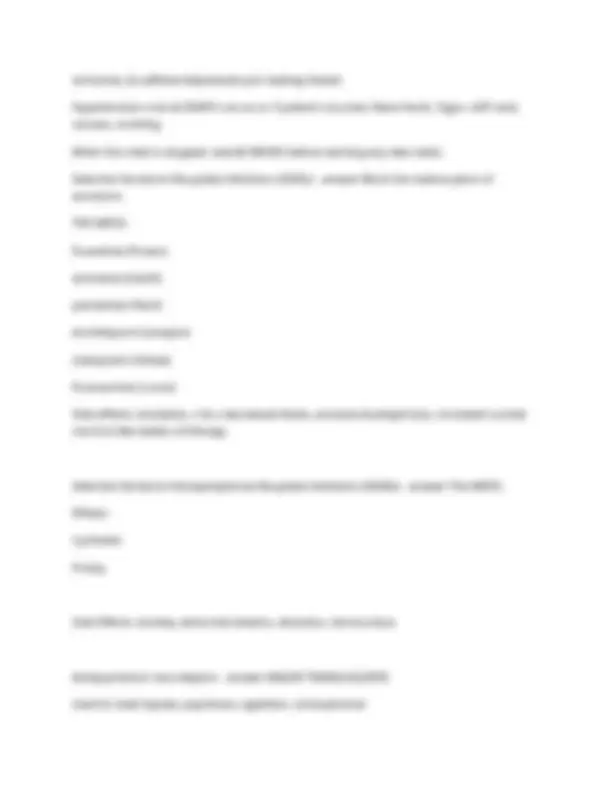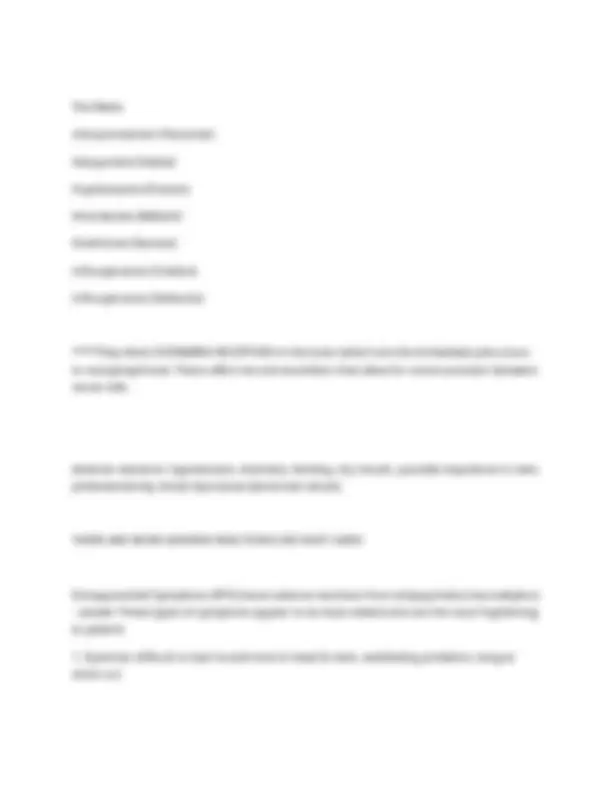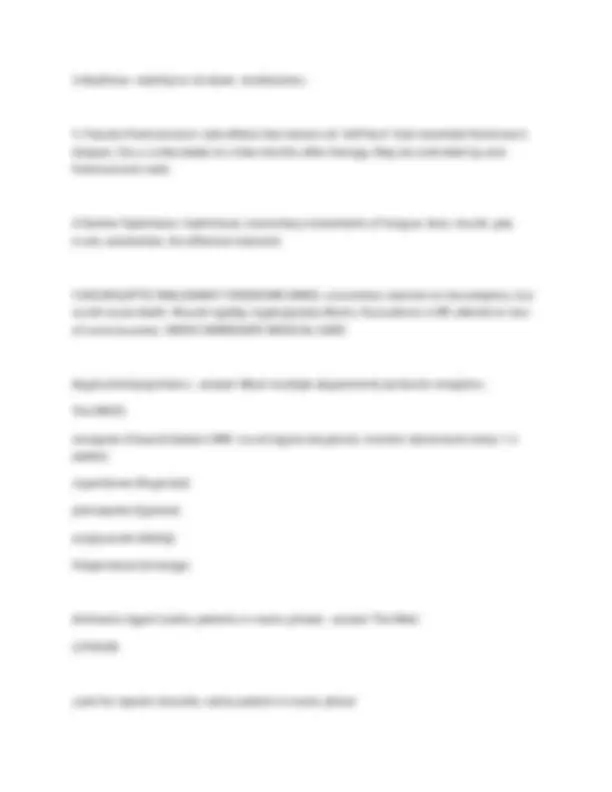





Study with the several resources on Docsity

Earn points by helping other students or get them with a premium plan


Prepare for your exams
Study with the several resources on Docsity

Earn points to download
Earn points by helping other students or get them with a premium plan
Community
Ask the community for help and clear up your study doubts
Discover the best universities in your country according to Docsity users
Free resources
Download our free guides on studying techniques, anxiety management strategies, and thesis advice from Docsity tutors
Mental Health Nursing- Medications Exam Questions And Accurate Answers.
Typology: Exams
1 / 7

This page cannot be seen from the preview
Don't miss anything!




Benzodiazepines - answer Main type of anti-anxiety medication. Relieves symptoms of anxiety-related disorders quickly. Most popular ones: *Clonazepam (Klonopin) *Alprazolam (Xanax) *Diazepam (Valium) *Lorazepam (Ativan) All addictive. For short term use only. DO NOT STOP ABRUPTLY, patients must be weaned off these meds or they will have SEIZURES. Buspirone (BuSpar) - answer Secondary type of Anti-Anxiety med. NOT A BENZO! This med does NOT give the tranquilizer effect that the benzodiazepines do. BuSpar's action is unknown. *Takes 2 weeks to take effect *Side effects are slurred speech and dizziness Beta Blockers - answer Another type of anti-anxiety medication. Not a benzo. USED PRN. PROPRANOLOL (Inderal) (common one) *Typically used to treat heart conditions and hypertension, but sometimes used to control "performance anxiety" CHECK PATIENT'S BP and PULSE before administering Antidepressants - answer Not uppers *6-8 weeks to take effect, continued for 6-12 months (or more)
THREE main groups of antidepressants: 1.Tricyclic 2.Monoamine Oxidase Inhibitors (MAOIs) MY FAVE!!!!!!!!! 3.Selective Serotonin reuptake inhibitors (SSRIs) Tricyclic Antidepressants - answer * Raise the level of epinephrine and serotonin in the brain by slowing the rate at which they are reabsorbed by nerve cells.
The Meds: chlorpromazine (Thorazine) Haloperidol (Haldol) Fluphenazine (Prolixin) thioridazine (Mellaril) thiothixine (Navane) trifluoperazine (Trilafon) trifluoperazine (Stelazine) ****They block DOPAMINE RECEPTORS in the brain (which are the immediate precursors to norepinephrine). These affect neurotransmitters that allow for communication between nerve cells. Adverse reactions: hypotension, dizziness, fainting, dry mouth, possible impotence in men, photosensitivity, blood dyscrasias (abnormal values) THERE ARE MORE ADVERSE REACTIONS! SEE NEXT CARD! Extrapyramidal Symptoms (EPS) (more adverse reactions from antipsychotics/neuroleptics)
2.Akathisia- inability to sit down. restlessness.
+Tegretol: 6-12 mcg/ml +Depakene & Depakote: 50-100 mcg/ml Stimulants - answer Directly stimulate the CNS, used to promote alertness, diminish appetite, combat narcolepsy. Also used to treat ADHD The Meds: methylphenidate (Ritalin) Side effects: increased or irregular heart rate, hypertension, hyperactivity, dry mouth, hand tremor, rapid speech, diaphoresis, confusion, depression, seizures, suicidal ideation, insomnia DO NOT GIVE TO PATIENTS WITH ALCOHOLISM, MANIA or display suicidal or homicidal thoughts DO NOT USE with heart disease or glaucoma MAY impair judgement, drive with caution DO NOT USE with MAOIs ( may cause hypertensive crisis) Take at least 6 hours before sleep to avoid sleep disturbances